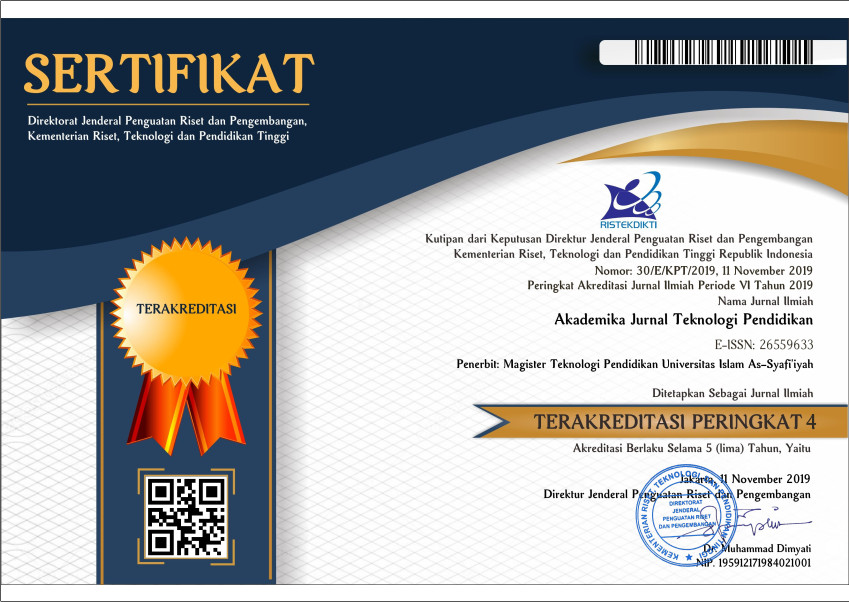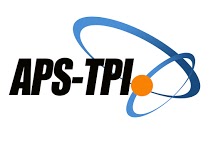INFLUENCE OF ICT MEDIA AND LINGUISTIC INTELLIGENCE ON ENGLISH LEARNING OUTCOMES
EXPERIMENT STUDY ON MIDDLE LEVEL DIKLAT PARTICIPANTS IN BADIKLAT LANGUAGE OF THE MINISTRY OF DEFENSE JAKARTA PUSDIKLAT
Abstract
This study aims to determine 1) The difference in English learning outcomes between training participants who are taught using ICT media and training participants who are taught using textbook media. 2) The effect of the interaction between the use of instructional media and linguistic intelligence on English learning outcomes. 3) Differences in English learning outcomes between training participants who are taught using ICT media and those taught using textbook media for training participants who have a high level of linguistic intelligence. 4) Differences in English learning outcomes between training participants who are taught using ICT media and those taught using textbook media for training participants who have a low level of linguistic intelligence. This study used an experimental model with a 2x2 factorial group design. The population in this study were training participants at the Badiklat Language Training Center of the Ministry of Defense Jakarta, the sample was taken using random sampling techniques, so that the sample was 48 training participants, consisting of 24 training participants for the experimental group and 24 training participants for the control group. Retrieval of learning outcomes data using test instruments and linguistic intelligence using a questionnaire. Based on the results of the analysis using descriptive statistics in the experimental class, the average value was 21.90 while the control class had the average value of 20.80. Then the results of the two-way ANOVA test analysis obtained the p-value of the media variable <0.05 (0.022 <0.05). Furthermore, the p-value of media interaction and linguistic intelligence was obtained <0.05 (0.00 <0.05), the Turkey test obtained p-value A1B1-A2B1 <0.05 (0.00 <0.05), and p-value A1B2-A2B2 <0.05 (0.042 <0.05). The results of the study showed 1) The results of learning English for the group of training participants who were taught using ICT media were higher than for the group of participants who were taught using textbook media. 2) There is an interaction between the use of learning media and linguistic intelligence on English learning outcomes. 3) The learning outcomes of the group of training participants who have high linguistic intelligence who are taught using ICT media are higher than the group of training participants who use textbook media. 4) The English learning outcomes of the group of training participants who have low linguistic intelligence who are taught using textbook media are higher than the group of training participants who are taught using ICT media
This work is licensed under a Creative Commons Attribution 4.0 International License.
Authors who publish with this journal agree to the following terms:
- Authors retain copyright and grant the journal right of first publication with the work simultaneously licensed under a Creative Commons Attribution License that allows others to share the work with an acknowledgement of the work's authorship and initial publication in this journal.
- Authors are able to enter into separate, additional contractual arrangements for the non-exclusive distribution of the journal's published version of the work (e.g., post it to an institutional repository or publish it in a book), with an acknowledgement of its initial publication in this journal.
- Authors are permitted and encouraged to post their work online (e.g., in institutional repositories or on their website) prior to and during the submission process, as it can lead to productive exchanges, as well as earlier and greater citation of published work (See The Effect of Open Access).









